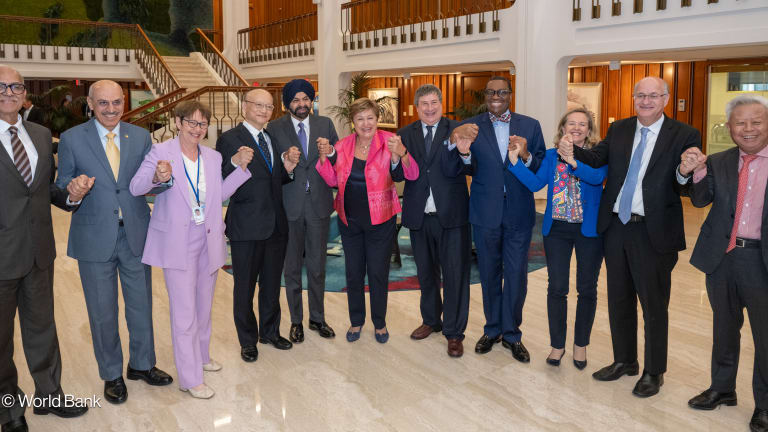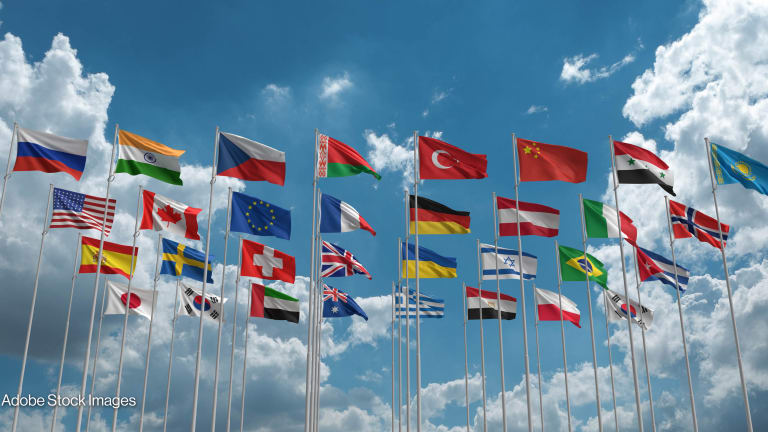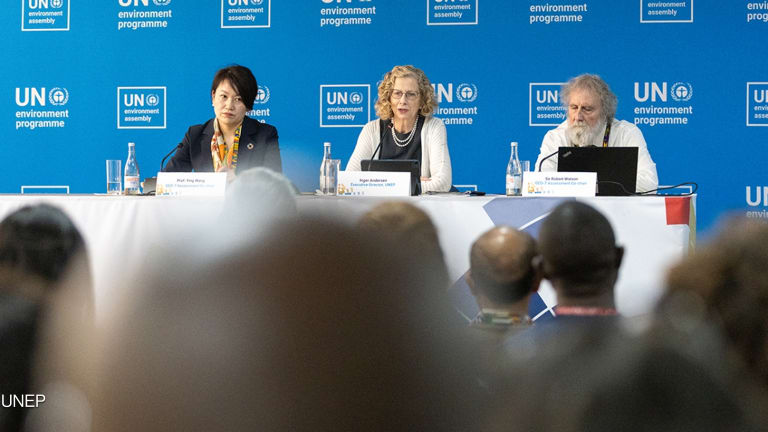
With the outcome of the presidential election between Donald Trump and Joe Biden imminent, the results will be critical, not only to the population of the United States but for the world at large.
A change of president has the potential to transform the leadership and international cooperation needed at a crucial juncture for international development — with only 10 years to meet the Sustainable Development Goals and with the shared global challenges of COVID-19, climate and environmental change, poverty, inequality, and injustice.
These are all critical and time-sensitive issues, at national and international policy levels, but if I had the opportunity to speak to a new U.S. president on just one, I would argue that at the top of the list must be climate and the environment.
Climate change poses existential threats to the planetary life support systems on which we all depend. Its effects are already felt profoundly around the world, with those who are already vulnerable and marginalized suffering most.
Instead of focusing on national interest, a foreign policy priority for the next president should be to restore respect for the international rule-based system.
—In the future, climate change and environmental degradation will further worsen poverty, inequality, social conflict, and displacement around the world. The need to address climate justice will also become more urgent — addressing the inequalities at the root of dangerous climate change and ensuring that measures put in place to mitigate its impacts do not further damage the livelihoods and way of life for communities living on the frontline.
Both science and everyday experience on the consequences of climate change are incontrovertible, yet in the U.S., it still seems to be deemed as controversial to say so.
Firstly, the U.S. president will need to show leadership on this issue, and from day one reverse the previous decision to withdraw from the Paris Agreement on climate change — which is to be implemented on Nov. 4, one day after the election.
More on the US election:
► 5 things for the development community to watch in the US election
► What would Biden's foreign aid policy look like?
► Would Biden 'rebuild the old program' to reduce Northern Triangle migration?
Secondly, addressing climate change requires system-level transformations in how we live, consume, produce, use energy, and move around. As the world’s second-largest emitter of carbon dioxide, the U.S. needs to commit to national level investment and regulation to curb polluting industries and promote nature-based solutions to climate and environmental problems.
The U.S. could play a leading role in exemplifying and supporting the vital system changes needed to secure everyone’s futures and contribute to climate justice locally and globally.
Technologies help, but at heart the climate and environmental transformations needed are political. The youth climate strikes and civil society action over the past few years have recognized this, and rightly demanded profound change.
We’ve seen high-level global and national policy commitments to address climate change, yet these have failed to produce enough real action. “Business as usual” on this issue is absolutely not sustainable. My hope is that a new U.S. president will lead their country to be a committed international partner ahead of COP26 next year, and work hard to ensure it is a summit that produces real, practical action globally. My hope is also that a new president will celebrate and support, not be dismissive of, the “bottom-up” transformative local actions emerging in the U.S. and around the world.
A related international policy issue that requires the same level of international cooperation and action is the 2030 agenda and the SDGs. They were established to ensure that no one is left behind and to agree on targets to be met by 2030, but more urgently needs to be done to recognize and act on the interconnections between the goals, make the universality of development a driving force for change and coordinate actions between nations.
While the successful achievement of the SDGs is primarily a matter for local and national commitments and actions, strengthened international cooperation and understanding also play a vital part. It is important for countries like the U.S. to particularly support SDG 17 — building partnerships for the goals, and sharing knowledge and lessons for good practice, including, for example, engaging with and influencing the China Belt and Road Initiative.
This is the time for the U.S. to show leadership in investing USAID not only in urgent aid relief but also in long-term development and the research and evidence needed to tackle the most pressing global challenges and help meet the SDG targets at home and abroad.
COVID-19 has painfully illustrated how interdependent and interconnected the world is. Instead of focusing on national interest, a foreign policy priority for the next president should be to restore respect for the international rule-based system and to encourage respect and learning between all nations: high-, middle-, and low-income.
Rather than acting as an outlier or a disruptor, seen recently by announcing the withdrawal of funding to the World Health Organization and as the only nation to block the appointment of the new director general of the World Trade Organization, a new U.S. president should seek to strengthen multilateral cooperation. From issues of ensuring the fair distribution of treatments and vaccines for COVID-19 through WHO, to tax reform of dominant U.S. tech companies through the G20/OECD Inclusive Framework, to the climate and sustainable development challenges that I’ve highlighted here, there are plenty of opportunities for it to do so. And it has never been so urgently needed.








